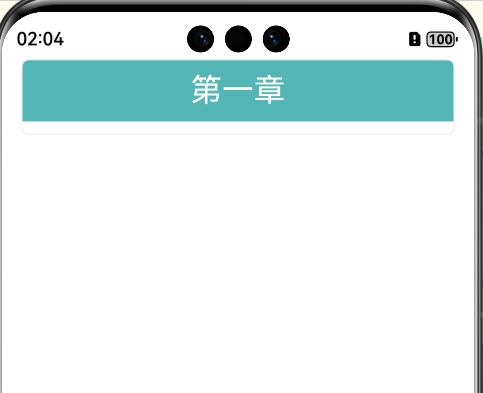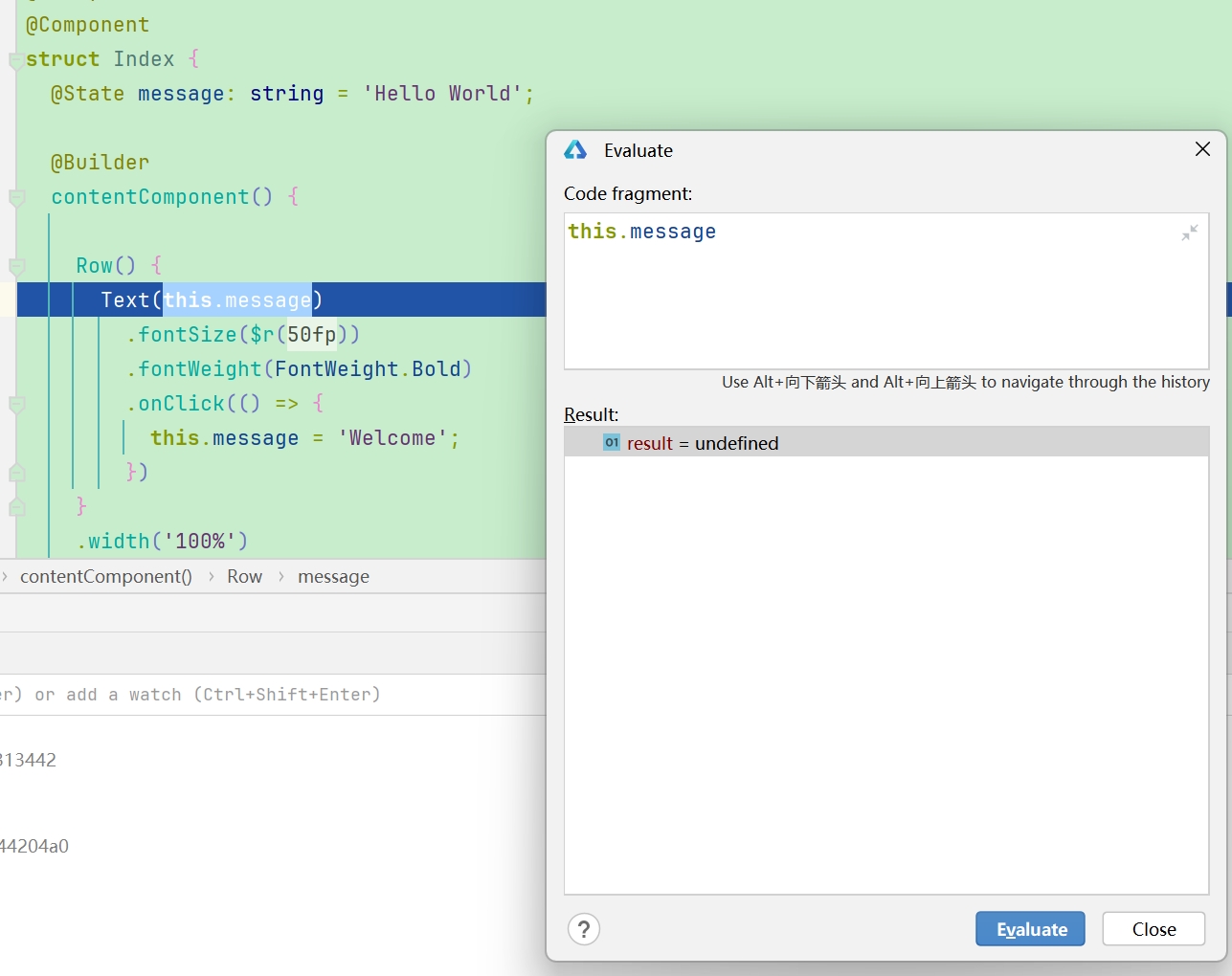HarmonyOS鸿蒙Next中小白请教:@BuilderParam 不生效
HarmonyOS鸿蒙Next中小白请教:@BuilderParam 不生效
我的entry模块依赖了另一个feature_common模块,在feature_common模块中,我定义了一个简单的组件,代码如下:
@Component
export struct SectionView {
title: string = ""
sectionColor: ResourceColor = ""
@Builder
defaultContentView() {
Text("2025年6月5日17:36:28")
}
[@BuilderParam](/user/BuilderParam)
contentView(): () => void = this.defaultContentView
build() {
Column({
space: 10
}) {
// title
this.titleView()
// content
this.contentView()
}
.clip(true)
.border({
width: 1,
color: $r('app.color.section_border_color'),
radius: 6
})
.backgroundColor($r('app.color.white'))
}
@Builder
titleView() {
Row() {
Text(this.title)
.fontSize($r('app.float.section_title_size'))
.fontColor($r('app.color.white'))
}
.width('100%')
.backgroundColor(this.sectionColor)
.padding({
left: 10,
right: 10,
top: 10,
bottom: 10
})
.justifyContent(FlexAlign.Center)
.alignItems(VerticalAlign.Center)
}
}
然后,我在entry模块的index.ets中使用了该自定义组件,代码如下:
@Entry
@Component
struct Index {
@State message: string = 'Hello World';
@Builder
contentComponent() {
Row() {
Text(this.message)
.fontSize($r('app.float.page_text_font_size'))
.fontWeight(FontWeight.Bold)
.onClick(() => {
this.message = 'Welcome';
})
}
.width('100%')
}
build() {
RelativeContainer() {
SectionView(
{
title: "第一章",
sectionColor: $r('app.color.primary_color'),
contentView: this.contentComponent
}
)
}
.height('100%')
.width('100%')
}
}
当我在模拟器上运行的时候,发现contentView的内容不显示,我又看了官方文档,仍然无法解决contentView不显示的问题,然后我进行debug,发现在contentComponent方法中this.message是undefined,为什么会这样呢?
我将this.message改成任意的字符串,都可以使contentView正常显示的。
我以为是我的用法不对,我又看了一下官方文档上关于@Builder的使用案例,其中有一个案例与我的代码思路基本上一样的,传送门,唯一的区别是,我的自定义组件是在另一个Module中。
烦请路过的老师们看一下我的出错的地方在哪儿。
贴一下效果图:


更多关于HarmonyOS鸿蒙Next中小白请教:@BuilderParam 不生效的实战教程也可以访问 https://www.itying.com/category-93-b0.html
此文档示例的关键部分 箭头函数的this指向问题,你传入contentView: this.contentComponent参数时this指向的是子组件SectionView,而你子组件中没有message这个变量,所以调试是undefine
https://developer.huawei.com/consumer/cn/doc/harmonyos-guides/arkts-builderparam# 装饰器使用说明
build() {
Column() {
// 调用this.componentBuilder()时,this指向当前@Entry所装饰的Parent组件,即label变量的值为"Parent"。
this.componentBuilder()
Child({
// 把this.componentBuilder传给子组件Child的@BuilderParam customBuilderParam,this指向的是子组件Child,即label变量的值为"Child"。
customBuilderParam: this.componentBuilder,
// 把():void=>{this.componentBuilder()}传给子组件Child的@BuilderParam customChangeThisBuilderParam,
// 因为箭头函数的this指向的是宿主对象,所以label变量的值为"Parent"。
customChangeThisBuilderParam: (): void => {
this.componentBuilder()
}
})
}
}
更多关于HarmonyOS鸿蒙Next中小白请教:@BuilderParam 不生效的实战系列教程也可以访问 https://www.itying.com/category-93-b0.html
谢谢彦祖,原来如此。
this指向问题,楼上已经给出解决方案了
在HarmonyOS中,@BuilderParam不生效可能由以下原因导致:
- 未正确传递Builder参数,需确保父组件传递了符合Builder格式的闭包
- BuilderParam修饰的属性类型声明错误,应使用
[@BuilderParam](/user/BuilderParam)() content: () => void形式 - 在API 9+版本中用法有调整,需检查SDK版本兼容性
- 未在组件内正确调用BuilderParam参数,需通过
this.content()方式使用
典型正确用法示例:
@Builder function GlobalBuilder() {...}
@Component
struct Child {
[@BuilderParam](/user/BuilderParam) content: () => void
build() {
Column() {
this.content()
}
}
}
在HarmonyOS Next中,@BuilderParam不生效的问题通常与作用域和this绑定有关。从你的代码来看,问题出在contentComponent构建器中this的指向发生了变化。
关键问题分析:
- 当Builder函数作为参数传递时,this的上下文会丢失,导致this.message为undefined。
- 你的contentComponent中使用了this.message,但在BuilderParam调用时this已经不再是Index组件实例。
解决方案:
修改contentComponent定义,避免直接依赖this:
@Builder
contentComponent(message: string) {
Row() {
Text(message)
.fontSize($r('app.float.page_text_font_size'))
.fontWeight(FontWeight.Bold)
}
.width('100%')
}
然后在调用时传递message:
SectionView({
title: "第一章",
sectionColor: $r('app.color.primary_color'),
contentView: () => this.contentComponent(this.message)
})
这种写法可以确保Builder函数内部能正确访问到message状态值。模块间的依赖关系不是导致问题的原因,主要是Builder函数的作用域处理需要注意。






